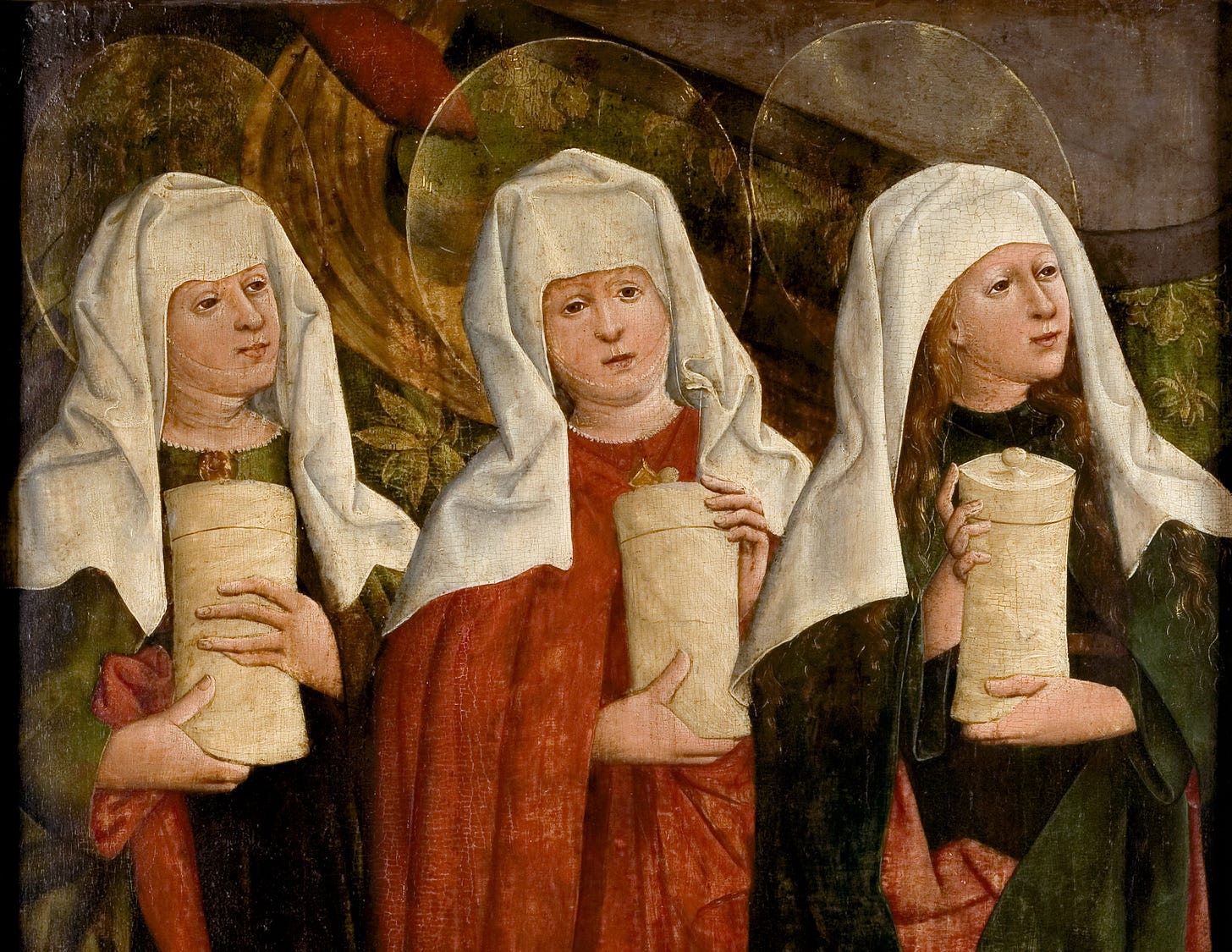I don’t think we realize it, but many of us go through life a lot like Mary Magdalene, Joanna, Mary the mother of James, and the other women at Jesus’s tomb on Easter morning.
While they were perplexed about this, suddenly two men in dazzling clothes stood beside them. The women were terrified and bowed their faces to the ground, but the men said to them, “Why do you look for the living among the dead? He is not here, but has risen. (Luke 24:4-5)
“Why do you seek the living among the dead?”
Where were those women? They were in a graveyard. They had come to a tomb. They were surrounded by darkness, decay, death. They came seeking the dead.
But the angel tells them that they’re wrong. Christ said, “I am the way, and the truth, and the Life” (John 14:6). He said that he came that we might have life abundantly.
The women think they are seeking the dead, but they are actually seeking the living. They just didn’t realize it. They set out thinking they would find a dead body. Instead, they found Life Himself.
Oftentimes, we are just like the women in the graveyard, only the other way around. We don’t often go looking for death. We are all animated by the pursuit of what we think of as life. Philosopher and theologian Jamie Smith puts it this way:
To be human is to be animated and oriented by some vision of the good life, some picture of what we think counts as “flourishing.” And we want that. We crave it. We desire it. This is why our most fundamental mode of orientation to the world is love. We are oriented by our longings, directed by our desires. We adopt ways of life that are indexed to such visions of the good life, not usually because we “think through” our options but rather because some picture captures our imagination.1
The problem isn’t that we go looking for death. It’s that we go looking for life in all the wrong places. We may think we are looking for one thing, when we are really seeking another. We may think our search will lead us to life, but it ends in futility.
we look for life in our circumstances
We think that the right environment; the right living situation; the right move; the right vacation; the right job; the right political party gaining power; the right group of evildoers getting their just desserts; we think that our circumstances are the place we will find life.
we look for life in others
We think that their approval; their affection; their admiration; their acceptance; the right relationship; the love and respect of a child; the gaze of a lover; the banter of a friend; the blessings of family; we think others will be the source of life we all want in our deepest heart.
we look for life in ourselves
We think that our efforts; our strength; our goodness; our moral rectitude; our accomplishments; our pleasure; our ideas; our wisdom; our self-discovery, self-realization, self-fulfillment is what will bring us life. We turn inward, look to what we can do on our own and expect that life can be found somehow in us.
renewing our search
When we look for life in all these places, the angel’s announcement reorients us: “Why do you seek life among the dead?” Graveyards don’t give life. And all these things—our circumstances, our relationships, ourselves—all these things, on their own, are so many piles of bones. Divorced from the only source of life in the universe—God himself—these things are simply sorrow-filled cemeteries.
Jesus said, “as the Father has life in himself, so he has granted the Son also to have life in himself” (John 5:25). The places we look for life apart from God are empty. Vacant. Vapid. Void. Only God has life in himself.
The angel had to renew the women’s search on Easter morning. Christians confess that all of us need that kind of renewal. We are all broken and need to be healed. We are all in error and need to be corrected.
This is the reason it is hard to follow Christ. To follow him we must deny the place we are so used to looking for life. To follow Christ, we have to deny our desire for control. To receive his life, our pride must die.
But this is the central movement of the Christian life: repentance and faith. Turning from death to life. From the graveyard to the garden. From self to Christ.
Repentance is admitting I don’t have life and can’t get it on my own. It recognizes that I am destined for death, and that Christ in his resurrection has conquered death and welcomes me into his own life.
He invites me to partake of a life that will not die, a life that can’t be taken away, a life that sits at the center of all things. He invites me into the life of God himself.
James K.A. Smith, You Are What You Love, pg. 11.








